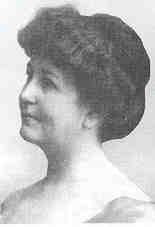 |
|
| Issue #35 • September/October, 1995 |
(This is a four-part series. Click the links to navigate to parts one, two, three, and four.)
Do you think we’ll ever have a woman as President?” I asked. “And what would you call her husband the First Husband? The First Man? The First Guy?”
I looked over at O. E. MacDougal. I wasn’t sure he was listening. “Really,” I asked. “Do you think we’ll have a woman President?”
He sat on the other side of Backwoods Home’s office and looked up at me from the newspaper. “Sure. It may not happen in any election soon, but one day it will maybe. In a bizarre sort of way, it already has.”
“What’s that mean?”
“Well…” He rested the newspaper on his lap. “…since the days of Abigail Adams, First Ladies have been accused of having undue influence on the Presidents. Some have certainly had more influence than others, and of the three dozen-plus women who’ve been First Ladies, one Woodrow Wilson’s second wife may have acted as President for awhile. Another one, knowing she couldn’t be President herself, took the man she married and made him President.”
Helen Taft
“Are you kidding?”
He shook his head. “That one was Helen Taft. She was an interesting woman. She was one of 11 children born into a prominent Ohio family. As a young girl she wasn’t particularly interested in the social life she’d been born into and she didn’t have many friends. She also didn’t have many suitors. She intimidated men with some of her behavior like occasional cigarette smoking and drinking beer with what friends she had. That kind of behavior was unbecoming in a lady in those days. But she wasn’t just some wild sort of teenager. She was bright, scholarly, and as a young woman she even established a group for the purpose of discussing art, history, music, literature, and other cultural subjects of the day.”
“So how did she actually go about making her husband President?”

Helen Herron Taft
“When she was about 17, her father took the family to visit the White House when Rutherford B. Hayes was President. Hayes had been a personal friend and law partner of her father. The trappings of power and the White House made a big impression on her, and she decided that one day she was going to live there. Given her circumstances that she was a woman the only way she was going to make it there was to marry a man who could take her there. What’s remarkable is that she decided to make the trek by marrying an easygoing, overweight, local politician who had just recently graduated from Yale William Howard Taft.”
“Did he see himself as a presidential candidate?”
“No. All he wanted was to be a judge, and he dreamed that someday he might even sit on the Supreme Court. He’d been born into a family that was politically prominent. His father had been one of Grant’s Secretaries of War but William was willing to settle into a life of local politics. But that didn’t make Helen or Nellie, as she was called happy.
“Unlike Helen, William was well liked and had friends wherever he went. While still a local judge, he was offered a job in Washington as United States Solicitor General. He didn’t really want it but Nellie pushed him into it and pretty soon they were living in Washington.
“Once there, William made friends quickly with many politicians including a man who would one day become President himself, Theodore Roosevelt.
“Nellie could have lived in Washington forever. But they stayed only two years because William got an appointment as a circuit judge back in Cincinnati and he accepted it. To him it was a step up. But to her it was a step backward because she felt as though she was once again languishing again in the backwaters of America.”
“So, what did she do?”
“At first, she made the best of it. To wile away her days she got involved in the local cultural events. She even helped found the Cincinnati Symphony Orchestra.
“Then, William was offered an assignment by President William McKinley. The Philippines had just been acquired, the result of the American victory over Spain in the Spanish-American War. McKinley offered him the governorship of the new protectorate. Taft didn’t really want it, but Nellie saw it differently. It was both an escape from Cincinnati and an opportunity for advancing William’s career. So, they were off to the Philippines.
“While they were there, they got the news McKinley had been assassinated and Taft’s good friend, Theodore Roosevelt, was suddenly the new President of the United States.
“Before long, a seat became vacant on the Supreme Court. Roosevelt knew William would like the position and offered it to him. But, as much as Taft wanted it, Helen didn’t, and she convinced him to decline it. As an aside I should point out that Taft was a capable governor of the Philippines and well liked by the Filipinos. So, staying wasn’t really a hardship on either one of them.
“Later, in 1904, Roosevelt offered Taft another job. This time it was the job of Secretary of War. This was a political appointment that Helen felt furthered his political career so she convinced him to accept it and they moved back to Washington.
“Shortly after they arrived another seat opened up on the Supreme Court and Roosevelt, knowing his friend’s wishes, offered it to him. Once again, Helen saw it as a dead-end to his political career and talked him out of accepting.”
“I’m surprised Roosevelt took the rebuffs so well,” I said.
“I suppose those things could have been taken as a real slap in the face. But, to prevent that, Helen had gone to the White House and personally explained to Roosevelt why William was declining it.”
“And why was that?”
“Roosevelt’s term was coming to an end. He’d been in the White House for seven years and in spite of his enormous popularity he wasn’t going to run again. She told him that she hoped he would support William’s nomination at the upcoming Republican convention. Roosevelt agreed and, in 1908, Taft was the Republican candidate and he had the wildly popular Teddy Roosevelt backing him.
“In the election, he faced William Jennings Bryan and won. It was Bryan’s third and final run for the presidency.”
“Wasn’t Bryan the guy who later helped to prosecute John Scopes in the so-called Monkey Trial?”
“Yes.
“In spite of his successful years as governor of the Philippines, Taft didn’t feel either inclined to be, or even capable, in the job of being President.
“His wife, on the other hand, won a reputation for intruding into government matters. Quite a few people felt she had undue influence over the people William appointed.”
“What did she do?”
“Among other things, she was instrumental in having the man who was ambassador to France fired because she felt he’d slighted her years earlier. And talk about biting the hand that feeds you, she even blocked the appointment of Roosevelt’s son- in-law as minister to China.”
“Why?”
“His wife, Roosevelt’s oldest daughter Alice, was a character in her own right and she’d made fun of Helen on several occasions. For Helen, it was just pay back time.
“Anyway, she had now achieved her dream of living in the White House and, because Roosevelt had left town before the inauguration, she even became the first woman to accompany her husband in the procession that made its way down Pennsylvania Avenue after the swearing in ceremonies.
“Then disaster struck. Less than three months after they were in the White House, Nellie suffered a stroke. It was another year before she recovered enough to resume her duties as First Lady.”
“That must have ruined her dreams.”
“Not for long. Once she’d recovered she went all out. She made Dolley Madison look like a recluse. She scheduled more entertainment than any first Lady had in years. She even had Shakespearean plays performed on the White House lawn. But she instituted some changes in the White House that were considered ridiculous.”
“Like what?” I asked.
“One that comes to mind is that she wouldn’t have bald or bearded men serve as butlers or waiters in the White House. On the other hand, she brought about changes in Washington that are visible even today even though few are aware that she’s responsible. It’s because of her that we have the annual blooming of the cherry blossoms in Washington. Some three thousand trees were donated to the United States by the mayor of Tokyo, Japan, when she made it known that she liked them.
“But her stint as First Lady ended sooner than she wanted because her husband served only one term. Taft and Roosevelt had a falling out. Taft was very conservative, as were most Republicans, while Roosevelt saw himself as a progressive read that as liberal. The men became enemies and in 1912 Roosevelt went to the Republican convention and tried to wrest the nomination from his former friend. He failed, so he went out and formed a separate party. By doing this, Roosevelt split the Republican vote and ensured Wilson’s victory.
“After he left office, Taft went on to become a professor at his alma mater, Yale. But in 1921, with Warren G. Harding another Republican in the White House, he got a third appointment to the Supreme Court. This time Helen didn’t oppose it and he had the position he had wanted as a young man. In fact, he had more than he wanted. Instead of Associate Justice, he became Chief Justice of the Court.
“He died in 1930 and she lived until 1943. But she spent the rest of her life living in Washington, D.C., the city she loved. Her children grew to be extremely successful including her oldest son, Robert, who served in the Senate and was nicknamed ‘Mr. Republican.’ He was considered a serious candidate for the Republican nomination. In fact he would probably have been the Republican presidential nominee in 1952 had not the war hero Eisenhower decided to run.”
Ellen Wilson
“So, Woodrow Wilson won the election of 1912,” I said. “What was his wife like?”
“During his two terms, two women served as First Ladies. The first was Ellen Louise Axson. Wilson met her when he was a young man and married her in 1885. Her father was a Presbyterian minister who later died in a mental institution.
“After they married, Woodrow taught at a couple of colleges before he went to Princeton where he taught jurisprudence and political economy.
“He also served nine years as the University’s president and it was as university president he came into national prominence. He got into a battle with the trustees and wealthy alumni about how the school should be run. The press depicted him as the champion of democracy fighting against vested wealth. To the Democratic Party in New Jersey, this made him a potential candidate the electorate could get behind so they nominated him to run for the governorship and he was elected in 1910. As governor, he pressed for and got several popular reforms that enhanced his national reputation. He went to the Democratic national convention in 1912, but he wasn’t there as a serious candidate and I don’t think anyone really thought he had a chance.

Ellen Louise Axson Wilson
“The guy everyone expected to win was a man named Champ Clark. But Clark couldn’t pull a majority in the early balloting and his power base started to fade as the convention wore on. Meanwhile, more and more of the delegates started throwing their support behind Wilson and after 46 ballots, he became the nominee.
“Because of Roosevelt’s third party run, the Republican vote was badly split and Wilson, with 42 percent of the vote, captured 435 electoral votes to Roosevelt’s 88 and Taft’s 8. Eight is the smallest number of electoral votes a sitting President has ever received in a bid for reelection. And Wilson, since he was from Virginia, became the first President from a former state of the Confederacy since Andrew Johnson.”
“What kind of First Lady did Ellen make?”
“She was an artist of some moderate talent and a social activist.”
“What’s that mean moderate talent? It sounds like a left-handed compliment.”
“It means just what I said, moderate talent. She didn’t devote her life to it, but she was somewhat capable. In fact, just before Woodrow’s inauguration, she staged a one-woman show and sold two dozen of her paintings, then donated the proceeds to charity. By moderate talent I guess you could say she probably wouldn’t have sold as many had she not been the President-elect’s wife.”
“Is there anything interesting about her?”
“Yes, mostly because of Woodrow himself. You see, he liked women and surrounded himself with female friends. Ellen learned early on in their marriage that one of the tacit conditions to make their marriage work was to tolerate his relationships with them. He corresponded with some, dined with some, and some even became friends to both him and Ellen.”
“Were these any more than platonic relationships?”
“I don’t know.”
“What did she do as First Lady?”
“She was more subdued than the two First Ladies who preceded her. And though the Wilsons entertained, their parties were also subdued and less frequent. They didn’t go in for grandiose parties. In fact, she and Woodrow cancelled the inaugural ball that followed his first election. They just weren’t the partying kind.
“What she was noted for was her charitable work, particularly among the blacks and immigrants who lived in the slums of the capital.”
“There were slums there even then?”
“Yes. In fact, she worked with Congress to help pass what became known as the ‘alley bill.’ It was supposed to improve the lot of the people living in the District and to rid the capital of its slums. The bill passed, but it was ruled unconstitutional and we’ve had slums there ever since.
“Something else you might find interesting: she worked hard to eradicate the squalor blacks lived in, but because of her Southern beliefs she still believed in separate facilities for blacks and whites in government buildings.”
“Really?”
“It was a sentiment of the times.
“She wasn’t First Lady for long. She hadn’t been in good health for years and during Wilson’s second year in the White House, she died of Bright’s disease, a kidney disease.”
“And you said there were two First Ladies during Wilson’s administration. So, he must have remarried.”
Edith Wilson
“That’s right. After Ellen died, Wilson went into a depression. He carried on his duties as President but a social life didn’t interest him. Then, several months later, his cousin introduced him to a woman named Edith Galt. She was a widow had been for seven years. She was bright, attractive, and vivacious, the three qualities Wilson most liked in a woman. And she was the first woman to really make him laugh since Ellen’s death.
“He began to see her frequently. She probably wasn’t the type of woman most people expected him to take up with. Before she met him, she’d been essentially apolitical. As a matter of fact, she even opposed women’s suffrage.”
“She was against giving the vote to women?”
“Yes. And keep that in mind. It becomes part of an irony.

Edith Bolling Galt Wilson
“She and Wilson got along famously. He began discussing everything with her. He even had a direct telephone line installed between her home and the White House which he used frequently to have whatever personal conversations he wanted to have with her, and to discuss policy, both foreign and domestic.”
“You’re kidding.”
“No.”
“Is that kind of stuff legal?”
“No President would dare do it today. But I don’t think anyone really thought much about it back then.
“Pretty soon he proposed to her. I think it overwhelmed her and at first she was reluctant, but he was persistent, and she relented. But his advisors didn’t like it and tried to head the marriage off.”
“Didn’t they like her?”
“They liked her just fine. What they wanted to do was keep him from remarrying before the 1916 election. After the election, they wouldn’t have cared. But they were afraid the Republicans would make political hay of the news he was remarrying so soon after Ellen’s death. So, to delay the wedding, they his own advisors told him there were rumors that a woman he had corresponded with for years was about to reveal an affair she had with him.”
“Then he was involved with other women.”
“I don’t know. But he seemed to spend a good deal of his time denying he was having affairs and he even told Edith, if she wanted, she could back out of the wedding. But she wouldn’t and he married her before the elections and won anyway.”
“What did she do as First Lady?”
“Well, the White House became an interesting place. Not that it wasn’t interesting before. But America’s involvement in World War I took place during his second term, and as part of the war effort the Wilson’s had sheep brought in to graze on the White House lawn. Ostensibly, this was to free up manpower for the war effort but it was more gimmick than anything else.
“Also, as First Lady Edith christened many of the U.S. warships launched during the war. She also had the option of naming them, and, as she was part Indian, she often chose Indian names for them.”
“She was Indian or part Indian?”
“She was actually a direct descendent of Pocahontas and John Rolfe.”
“No kidding?”
“But history would probably all but have forgotten her as it has so many other First Ladies had it not been for Wilson’s sudden illness.”
“That illness being?”
He looked up at the ceiling. “Let me tell you what was happening before his illness. When World War I ended, there was a movement to establish the League of Nations the forerunner to the United Nations. Wilson wanted this country to join. The Congress, which had gone Republican in the elections of 1918, opposed American entry, or any kind of involvement in European political entanglements. Without Congressional support, American membership in the League was doomed. So Wilson started a tour of the country hoping to drum up enough popular support so public opinion might sway Congress.
“No one knew what happened to him. One day he’s stumping the country from a train and next day he’s sick, paralyzed on his left side, and nearly helpless.
“At first, it was diagnosed as a severe case of influenza.”
“Symptoms that serious and they thought it was the flu?” I asked.
“There was an influenza epidemic during World War I that killed more than 20 million people around the world including over a half-million in this country. To a lot of people, it just seemed like a logical explanation of what had happened to him.
“Later, the press was told he’d had a complete nervous breakdown. But doctors today believe he’d had a stroke a cerebral thrombosis.
“Anyway, the Wilsons returned to Washington and he disappeared into the depths of the White House to be seen only by Edith and his doctor.
“The public, the press, and Congress wanted to know what was going on. But she shielded Woodrow from everybody including his secretaries, his advisors, and his cabinet. Though she denied making presidential decisions herself, she admitted that she decided which matters he saw and could make decisions on.
“The press and Wilson’s critics began to call this ‘Mrs. Wilson’s Regency’ and ‘petticoat government.’ Keep in mind, the 19th Amendment, giving women the right to vote, hadn’t even passed yet. It would the following year, but for now, Edith, a person who couldn’t vote and who just a few years before didn’t think women should be allowed the vote, was deciding what Wilson saw, what he decided on, and she passed other matters on to appropriate cabinet member for disposal. She was in effect administering the executive branch.”
“Why didn’t the Vice-President take over.”
“Everyone knows the Vice-President takes over when the President dies or resigns. But it wasn’t until 1967, when the 25th Amendment was passed providing for replacing a disabled President, that that could have happened. In 1919 there was nothing in place. So, nothing happened.”
“Did the Vice-President make a move to assume Wilson’s duties?”
“Wilson’s Vice-President was a man named Thomas Marshall and he showed no inclination to really want to be in the White House.”
“Then, was she in essence the acting President?”
“It could certainly be construed that way. But gradually Wilson recovered and, as he did, he assumed more and more responsibility for what had to be done.
“But for a brief time, Edith exercised more power in this country than any woman before or since.
“When Wilson had recovered enough to meet with his cabinet again, it was clear he wasn’t the same man anymore, and though he wanted to run for a third term, the Democrats realized they couldn’t run a man who was not that far removed from being an invalid. So they nominated James Cox in 1920 and Cox lost to Warren G. Harding. But even if they had nominated him, and he had won, it’s not likely Wilson would have lived out his term. He died early in 1924.
“Edith, however, lived until 1961 and remained politically active within the Democratic Party until then. When she died on Woodrow’s birthday she was 89.”
Florence Harding
“The next First Lady was a woman some have accused of being a murderess.”
“A murderess? Who?”
“Florence Harding the wife of Warren G. Harding.”
“Who’s she supposed to have murdered?”
“Him.”
“You’re kidding. I’ve got to hear about her.”

Florence King De Wolf Harding
“She was born into the well-to-do family of an Ohio banker and as she grew up she turned into somewhat of a wild teenager or at least that’s what her father thought. He used to lock her out of the house whenever she came home too late from a date.”
“What did her mother think of this?”
“She was dead by then.
“This went on for a few years. Then, to escape Dad, she eloped with the lazy son of the local coal dealer.”
“Was that Harding?”
“No.”
“It sounds like she married a bum. What did she see in him?”
“She was a sucker for good looking guys and this kid was, in today’s terminology, a stud-muffin. But within months he abandoned her and their son.”
“Then she met Warren?”
“No. She tried to go home, to live in her father’s house again. But he wouldn’t let her back in, even though she had a kid and was broke. So, to support herself and her son, she gave piano lessons. After awhile the old man relented and took her in again.
“Several years later, and by this time she was 30, she took up with another looker. This one was an exceptionally handsome journalist, five years younger than she, and Daddy tossed her out again. This time it was seven years before he spoke to her and fifteen before he’d set foot inside her home. By then it was 1906 and the man Florence had taken up with had become the lieutenant governor of Ohio.”
“That was Harding,” I said.
“That’s right.”
“There’s an old saying that girls marry men like their fathers,” I said.
“Not in this case. Warren was nothing like her old man. Florence married a man she could control.
“Warren, on the other hand, had married a woman like his mother a domineering woman.”
“Sounds Oedipal,” I said.
“I suppose it does.
“Warren today is regarded as a simpleton who made it to the White House. In truth, he was a college graduate at 17, bought a newspaper with some friends when he was 19, and as editor and publisher converted the Marion, Ohio Star from a weekly to a successful daily newspaper.
“Later, when Florence went down to the newspaper to help out, what was supposed to be a temporary stint turned into a 14-year job. But they worked very well together. He wrote editorials and did PR work. She took over circulation and advertising and did a good job with the finances too. They were well liked by the employees, though they resented her penny pinching.”
“Sounds like a testament to her abilities to control costs.”
“It is. As a publisher, he supported the Republican party and eventually went into politics. First he was elected to the Ohio senate where, within three years, he worked himself into a position of leadership. Then he became the lieutenant governor and his political career looked very promising. But in 1910 he lost a bid to become governor, left politics, and went back to Marion to run his newspaper.
“In the meantime, because he was an exceptionally good looking man, women were drawn to him and more and more it became the bane of Florence’s life. She became obsessive about always being with him.”
“So, he was a philanderer?”
“That he was. We know he had several affairs, including some with the wives of friends. He carried on some of these liaisons simultaneously. One friend, James Phillips, was paid off to keep him quiet and leave the country after he found out his wife and Warren had been seeing each other.”
“Really?”
“Yes; they’d carried on for 15 years, from 1905 to 1920.”
“Egad.”
“Another, a woman named Nan Britton, fell in love with him while she was a high school student. She had a kid by him in 1919, the year before he was elected to the presidency, and they continued their relationship after he was elected. On at least one occasion the two of them were almost caught together in a White House closet, by Florence.”
“How’d a guy like that get elected?”
“Well, at that point his private life wasn’t a matter of public record, though there were a great many things said about him some of which I don’t know whether they were true or not that could have scuttled his political career at any time.”
“Like, what?”
“Well, there were rumors, true or not, that Harding was part black. Today, it’s conceivable that a black perhaps Colin Powell could make it to the White House. But in the early part of this century being black or part black would have been the kiss of death.”
“So, no one knew about his affairs and the rumor that he might be black wasn’t widespread.”
“That’s right. But getting back to Harding’s political rise, in 1914 his political advisor, Harry Daugherty, suggested Harding run for the Senate. Florence and Daugherty pushed him until he agreed. The 17th Amendment, stipulating that U.S. senators would be popularly elected, had been passed the year before and in Ohio’s first senatorial election he squeezed out a narrow victory. So the Hardings moved to Washington.
“Once there, Florence was introduced to Washington society by Evalyn Walsh, the wife of millionaire Edward McLean, the man who then owned the Hope Diamond. Florence wasn’t anywhere near as polished as that diamond and she was met with mixed reviews. A lot of Washingtonians didn’t like her and she knew it. She began to keep a notebook. In it she kept the names of all the people she felt had snubbed her. Years later, when she was First Lady, this was the book she referred to when she invited guests to the White House or when her husband was about to make an appointment. And, if your name was in that book, your chances were pretty dim.
“But if she was vindictive, she was also very democratic maybe too democratic. When royalty visited Washington, D.C., society women made a habit of curtsying before them. But not Florence. She said this was the United States and Americans don’t bow before royalty. She said if she went to Europe she’d do as the natives do. But not until then.”
“What kind of a First Lady did she make?”
“A lot of people didn’t like her. This included the outgoing First Family, the Wilsons. They felt the Hardings, Florence in particular, were too common. And the rest of Washington society felt pretty much the same way. The public, on the other hand, loved her and so did the White House staff. She claimed the only real interest in her life, her life’s hobby, was her husband. Sentiments like that not only didn’t hurt her image, but they were true.”
“If a politician’s wife felt like that today, she’d be afraid to say it.”
“Probably.”
“It’s hard to say whether Harding could have gotten reelected if he’d lived. His administration was riddled with scandals. The worst was the Teapot Dome scandal which involved bribing of some of his cabinet members to allow the private development of federally owned oil reserves. Even his friend and advisor, Daugherty, who became his attorney general, turned out to be taking bribes. His administration was turning into a mess.
“But one of his biggest surprises was that he pardoned the Socialist, Eugene Debs, who had been jailed for making anti-war speeches during World War I. And, as if that weren’t enough, he invited Debs to the White House, talked with him, found he liked him a lot, and said so. People really didn’t know what to make of him.”
“Okay, what about the part where you said there were people who accused her of murder?”
“We’re just getting to that. Over the years there’s been speculation, and at least one book written, that claimed Florence was responsible for her husband’s death”
“In what way?”
“She poisoned him.”
“Did she?”
“I doubt it. But the plot takes some interesting turns because the man conspiracy theorists like to implicate as Florence’s partner in his death was Harding’s friend and surgeon general, Dr. Charles Sawyer. Then, about a year after Harding’s death, Sawyer, who was still Florence’s doctor, died a death similar to Harding’s. The implication is that after he’d helped Florence bump off her philandering husband with poison, she murdered Sawyer the same way. Shortly afterward, even Florence herself was dead.”
“It seems like a little more than coincidence that they’d all die so close together.”
“Maybe, and I don’t know Sawyer’s history, but when he ran, Warren had heart disease and Florence had kidney disease.”
“Oh, then I guess that takes a little of the mystery out of it.
“So who was next?” I asked.
Grace Coolidge
“When Harding died, word was sent to Vice-President Calvin Coolidge. He was visiting his father’s home in Plymouth Notch, Vermont. His father was a justice of the peace there and, as he could take oaths, he swore Calvin in as President in the kitchen of his farmhouse. It’s the only time a President’s been sworn in by his father.”
“Wasn’t this the President they called Silent Cal?” I asked.
“That’s him. Sometimes I think the only reason history remembers him is because he was so taciturn.”
“Who was his wife?”
“Grace Coolidge was the new First Lady and just the opposite of Cal. She was talkative, funny, and sociable. But as different as they were, they were very much in love with each other.
“When they met, she was a teacher of the deaf at the Clarke Institute for the Deaf in Northampton, Massachusetts.
“Right from the start they were an odd couple he was quiet and introspective, she was affable and extroverted. Their friends couldn’t imagine what they saw in each other and were even more surprised when they got married.
“They lived together in Northampton as an ordinary, though quite frugal, couple while Calvin climbed the political ladder from local politics to the state level. He was elected lieutenant governor in 1915 and governor in 1918. There was nothing spectacular about his governorship until the economic conditions that followed World War I brought about inflation and the Boston Police Department, whose members were living on fixed wages, went out on strike. Coolidge’s position was, ‘There is no right to strike against the public safety by anybody, anywhere, any time,’ and he called out the state militia to patrol the streets of the city.
“That single act, though made without regard to politics outside of Massachusetts, launched him onto the national scene. In the Republican convention of 1920, he was the popular choice among the delegates to be Harding’s vice-presidential running mate, even though the party leadership wanted Senator Lenroot of Wisconsin.”

Grace Anna Goodhue Coolidge
“And then,” I said, “with the death of Harding he became President and Grace the First Lady.”
“That’s right.
“And when he became President, he forbade Grace to do anything out of the ordinary. She was not to dance in public, drive an automobile, give speeches, or fly in an airplane even though the pilot who offered her a flight was none other than the great Charles Lindbergh. In fact, when she was asked to give a speech by a group of women reporters, she obliged them, while obeying her husband’s edict against public speaking, by giving the entire speech in sign language, the language she had learned to be a teacher of the deaf.
“Of course, by doing this, she was mocking him. But he loved it and, to the public, tolerating it made him seem like a warm man which he wasn’t.”
“But if there was one thing she
didn’t like about being First Lady, it was that Calvin scheduled her public appearances without telling her in advance when, where, or before whom she was supposed to appear. She was always among the last to know.”
“Why didn’t she insist he let her in on those things?”
“She did. But it didn’t change anything. So she just made it a point to always be ready.”
“But why did she let him dictate to her like that?”
“By her own admission, she liked being told what to do. As a child, her father always told her what to do and, in choosing a husband, she chose a man who would always tell her what to do. He even dictated her dress and hair styles.”
“Coolidge himself was roundly criticized by his opponents for his legendary inability or unwillingness to make small talk. Years later, when the writer Dorothy Parker was told that he had died, she asked, ‘How do they know?'”
I laughed.
“Grace could have harbored animosity toward those who made fun of his reticence, but instead she provided her own stories. One of the best known, attested to by her, was about a woman who sat next to him at a dinner. He was quiet, as usual, and the woman finally turned to him and said she’d made a bet she could get him to say more than two words. He looked her in the eye and said, ‘You lose.'”
“Did that really happen?”
“Grace swore to it.”
“Are there any other stories like that?”
“Sure.”
“How about a few?”
“Okay. Well, after a church service, he was asked what the sermon was about. ‘Sin,’ he said. When asked what the minister had to say about it, Coolidge’s answer was, ‘He said he was against it.’
“Coolidge is also the man who said, ‘If you don’t say anything, you won’t be called on to repeat it.'”
“I like this guy. It sounds as if he actually had a good sense of humor.”
“My favorite story about him,” Mac said “actually involved the two of them. They were touring a farm and Grace had gone off with a man who was showing her the chickens. She watched a lone rooster chasing the hens and asked how many times a day it serviced them. The man said, ‘About 50.’ ‘Go tell that to Mr. Coolidge,’ she said.
“‘He did and Coolidge asked the man, ‘Is it always the same hen?’
“The man said no.
“Calvin said, ‘Then go tell that to Mrs. Coolidge.'”
“Now I know I like him.”
“But he wasn’t just economical with his words; he also applied his sense of economy to both the government and his family life. In Northampton they lived with a party phone do you remember what those were? He also wouldn’t buy a car and he bought his kitchen utensils from a defunct hotel. But one thing he didn’t scrimp on was Grace’s clothes. He loved to see her well dressed.”
“That’s kind of curious, isn’t it?”
“I told you, he loved her.”
“Did they have any kids?”
“Two. Coolidge’s real name was John Calvin Coolidge and he named one of his two sons John and the other Calvin.”
“Even economical with names?” I said.
“Yes. Calvin Jr. died of a foot infection in 1924 while his father was President. He was just 16 at the time it was the days before antibiotics.
“But John, I believe, is still alive. He’d be about 90 now.”
“Did Grace have any influence on his policies?”
“None. And if she had political opinions of her own, we don’t know what they were. She kept them to herself.
“Not only that, he didn’t consult with her on his plans in politics. So she was as surprised as anyone when he announced he didn’t plan to run for reelection in 1928.
“Still, she was very popular with both Washington society and the press and he was grateful for it. The irony was that though she was sure Calvin would be a successful President, when they went to the White House, she doubted she would be liked.”
“The White House must have been a dull place during his administration.”
“Actually, it wasn’t.
“It was during Coolidge’s administration that the Federal government took over paying White House expenses for official entertaining. As a result, there were more official guests during his six years than during any administration before and Grace was the ideal woman upon whom the burden of this entertaining fell. He was lucky to have someone like her.
“And because Coolidge was almost pathologically incapable of making small talk, at White House functions Grace made it her duty to fill in the silences that made Calvin known as ‘Silent Cal.’
“It sounds as if she was pretty happy as First Lady.”
“She was. But when he died, the woman who liked being told what to do felt as though she’d been cast adrift. Life was never the same for her after that.”
“Anything else about her I should know?”
Mac smiled. “Yeah, she was a baseball fan. Went to a lot of games. She loved the Red Sox.”
“Really? A Sox fan? Hey, I like her a lot.”
“I knew you would.”
“Who’s next?”
Just then, Dave Duffy, the fellow who publishes Backwoods Home, came in. He sat at his desk, checked his in-box for messages, then looked across the office at Mac and did a double take. “When did you get here?”
“Last night.”
“What are you here for?”
“Three days and fishing.”
“Hey, I’m on my way to Ashland. Wanna come?”
“Sure,” Mac said and got up.
They headed for the door.
“Hey, Silveira, have you got your article done?” Dave asked.”
I thought a minute. “Yeah, it’s almost done.”
“Let’s go,” he said to Mac.
I heard the door slam as I started to type.














